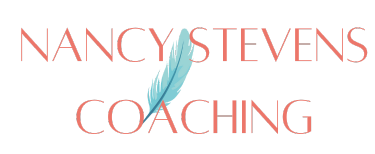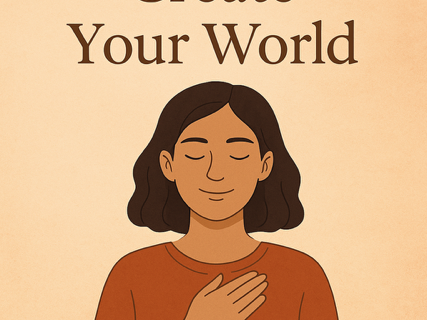
Clear Your Mind to Increase Productivity
“Alchemy is the process of changing lead into gold. Inner alchemy (personal transformation) occurs when we clear our clutter—internal and external—and let go of things that no longer serve us well. This creates balance and space, a place that nurtures contentment, which I believe is true success.”
― Laurie Buchanan, PhD
Mental clutter and I became fast and true friends as I closed out on baby #4. It was all I could do in those first few months to handle each day as it came at me. I was reacting most times and responding sometimes. Fatigue and overwhelm played well together in my life during this time. I was short on sleep, exercising infrequently, and eating poorly. To top it off, I could barely keep up with household “to dos” and either lost or misplaced some important documents that ended up taking even more time and effort from me to have duplicates sent. These key areas, I have learned, play a major role in mental clutter. One thing I did for myself was to get back to the gym and take time for me. It was there that I discovered Yoga. It was through my yoga practice that I learned practical life skills to reframe old thought patterns that kept me under clutter. Over time, I placed these skills in my thoughts, and day to day life, which slowly lifted the fog of mental clutter.
Although this is not yoga, I want to offer you 10 ways to start decluttering your mind today.
Here are 10 ways to start today decluttering your mind.
Eliminate & Declutter – As I mentioned above, eliminating excess baggage and chaos around your home is paramount.
Assign Importance – Decide what is most important to you and your life…your well-being, and make it a priority. It seems like the last 20 or 30 years things have gotten far more convenient but, at the same time, it has gotten more filled with unnecessary events, tasks, and busy work. Decide what is fundamentally important to you and your happiness and make it a priority. Make a place on the list for your wellness checkups. Think of your well-being, mental clarity, and emotional contentment as goal number one. Everything else will be easy to figure out from there.
Author a Plan – Take everything you learned in number 2 and make a list of it. This is not the list we will be talking about in number 9. This is the list that you carry with you and that you will look at every morning and every night. It will become your touchstone. It will keep you honest and on track with coming to a place of mental clarity.
Take a Deep Breath – I have a client who often has to take a deep breath because she realizes she has stopped inhaling and exhaling. Sounds silly as it should be automatic, right? Well, often when we get too tense and uptight, we will hold our breath out of anxiety. Besides the obvious (supplying our body
with the oxygen it needs and removing toxins from our body), proper breathing helps to keep us calm and to deal with stress. Reiki master Duccio suggests the following breathing exercises:
1) Stand up with your arms outstretched at your sides. Then exhale through our nose, emptying our lungs completely.
2) Inhale slowly through our nose and as we inhale we need to push out the abdomen first and then the chest.
3) While we are still inhaling slowly we bring our arms over our head and pull up on our toes and need to count to 10 to complete these movements.
When we get to count to 10 we join the palms of our hands together over our head and hold it in this position for a few moments.
4) Exhale slowly through our nose counting to 10 and at the same time slowly we lower our arms and place our feet on the ground.
Repeat the exercise three to ten times, without pause.
The exercise can also be performed from a sitting or lying position, without arm movements.
– Exercise lying in supine position, in a horizontal position, with our back on the ground.
We begin to breathe evenly and gently focusing on the movement of our stomach.
As we begin to breathe we let our stomach rise up in order to bring air into the lower part of our lungs and as our lungs fill with air, our chest begins to rise while lowering our stomach. During this exercise, we must not strive.
The length of the exhalation will be longer of the inspirations.
We can repeat the exercise 10 times.
Journal – Julia Cameron says, “Writing is a spiritual practice in that people that have no spiritual path can undertake it and, as they write, they begin to wake up to a larger connection. After a while, people tend to find that there is some muse that they are connecting to.” Write about your fears, your desires, your hopes, and your dreams. Keep it and refer back to it or, as Julia Cameron directs in her popular series of books that began with “The Artist’s Way”, write three pages every morning and never look at it again…burn it if you want to. The important thing is that you write. As Cameron discusses in her books, writing stream of conscious pages gets rid of the inner critic…it frees us to breathe and to dream again without concern of being censored. Once you have cleared the physical clutter, you will begin to have more time for things that will not only bring the mental clarity but that will encourage you to connect with who you are as a creative soul.
Sleep – It’s crazy that we even have to write about this one, isn’t it? Although scientists’ best advice on sleep needs range from 7 to 9 hours as optimum, many of us are getting far less. One of my clients is a self professed “8 hour gal” but only averages between 3 and 4. Good sleep cannot be overrated. The way you feel while awake directly correlates to the quality of sleep you have had the night prior.
While you sleep your brain:
is forming new pathways to help you with cognitive abilities (learning and thinking).
restores decision making. If you don’t get enough sleep, your brain has trouble making decisions and solving problems. You have a more difficult time controlling anger, and emotions.
keeps you emotionally clear. Sleep deficiency leads to depression, risk-taking behavior and, often, it is linked to suicide ideation and practice.
keeps you satisfied. Sleep affects your hormones that make you feel hunger. Ghrelin makes you feel hungry and leptin makes you feel full. When you wake with less than adequate sleep, you will feel more hunger throughout the day (as your ghrelin goes up and your leptin goes down). This leads to overeating and, more than likely, less exercise given your sleep deprived state.
keeps you healthy. Sleep is important for your physical health in that it is important for the repair of your heart and vascular system. Lack of sleep gives you a higher risk of heart (including stroke) and kidney disease, high blood pressure, and diabetes.
keeps us in shape. Lack of sleep makes us fatter. This is across the board with youth and with adults.
helps your reproductive system working properly. Sleep plays a role in fertility.
Strengthens your immune system.
helps with mental balance. Children who are sleep deprived have issues at school. They have a tough time getting along with other students. Like adults, they will have mood swings and become depressed. They often lose motivation for the simplest of tasks. Often, sleep-deprived children are accused of being ADD as they have a difficult time focusing and paying attention. All of this means that they will often get lower grades than they would have had they had adequate sleep.
assists with growth hormones. Sleep is doubly important in children and teens who are growing. When they get into a deep sleep, hormones are released that promote normal growth, boosts muscle mass, and helps repair tissues.
Walk…Be in Nature – A client of mine went through two of the most difficult years of her life: a divorce, a terminally ill mother, lack of work … What she and most people tend to do in these situations is to hibernate. The desire to climb into bed and to pull the covers over our heads is intense. Resist it. I encouraged my client to immediately go to the hiking trails after dropping her kids off at school. She initially did just 45 minutes of walking but soon it escalated to an hour and a half hike. She was still done by 9:30 am and had plenty of time to tend to her responsibilities. She found, once she started this regime, she had more energy than ever before. She lost weight as a side benefit. Most importantly, she suddenly had clarity of mind.
Less Technology – Watch less tv. Delete Facebook from your phone. Cancel cable/satellite. All of these and more are ways that some of my clients have improved their mental health and added to their lives. Oftentimes people think that “vegging out” in front of the tv is “relaxing”. It’s not. What you are putting into your mind is noise. It can be confusion. It is noise. Our minds need time to relax…to decompress. There is a reason why there are series of CDs of classical music/white noise/birds chirping and rain falling for relaxation, studying, sleeping, meditation. Our minds need to disconnect from the noise around us. Constant checking of social media, such as Facebook, are ways that we can become angry, competitive, depressed, … Often we come away feeling like we don’t measure up to the lives of others (many articles address the morbid depression that some experience with this seemingly “harmless” habit which is often more like an addiction).
Cross Off the To-Do List – What is really important to you. If the items are truly important (important enough that you added them to numbers 2 and 3), get them done. Delay gratification in things that use your time (the aforementioned technology) and get these items done. Depression often comes from these lists (written and in our mind) going “undone”. If it’s important enough to keep on the list, it’s important enough to get them finished.
Let go of What You Can – We often walk around harboring bad feelings toward someone or to a situation. Think about it and feel it. Decide if it’s worth addressing (perhaps a friend did you wrong…or, worse, you did wrong by a friend). If so, develop a timeline in the immediate future and deal with it. If nothing else, write a letter to deal with it and then let it go. The angst, anger, and sadness that you experience over these situations steal your joy and your peace. Deal with them if the situation demands it but let it go regardless. Be a person of honor from this day forward and decide to deal with these situations as they come up. Don’t let things fester.
BONUS: Organize – When you see the word “organize”, you are going to instantly think of organizing your space as my blog post from last week discusses. But “organize” can mean a multitude of things. In this case, I’d like you to organize your thoughts and how you go about your life. I’d like you to learn to be decisive.
Have a place for everything. Do not simply toss your mail and receipts into a never ending pile. Deal with it as soon as it is in your hand. Have a recycling bin and a trash can next to the spot you normally place these items.
Have folders for the receipts (a client of mine has an envelope in her car that she changes out each month. At the end of each week, she writes on top whether they were personal or work related and they get filed in the appropriate place). Go through that stack on your desk and be decisive about how you deal with it. Get it all done or get it out.
Be decisive in your decision making. When all else fails, utilize a “PROS/CONS” list. For more complicated matters, an excellent resource is the WRAP Method by the Heath Brothers.



